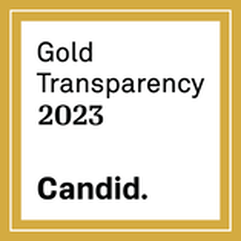|
Photo by Tallie Robinson on Unsplash The Bi/Pan+ Workshop is a workshop series for people who are bisexual, pansexual, queer or anyone who has ever been attracted to more than one gender. Last week, I sat down to talk with Dani Muñoz and get the full scoop. Dani is one of the awesome people working at The Annex to facilitate workshops and events for our community. They filled me in on all the details you'd want to know if you're thinking about attending - read on for more! So what is this group all about? What kinds of things can I expect to talk about at the workshop? We have conversations about a lot of different topics. We talk about our own gender; about the gender of people that we're attracted to; what it's like to come out; representation in the media; relationships. What are healthy relationships, what aren't; what it's like to be in a relationship when you're not monosexual. There's still a lot of "pick a side" stigma, both in the straight and gay community. We talk about what it means to be bi or pan, what it means to us personally, and how we can be affected by the erasure of our experiences. We also talk a lot about how to feel confident and comfortable with yourself in your orientation. There's no single right way to be, and we want to help people be as out as they want to be (and that is different for everyone). Where do the materials and programming come from for the workshop? The volunteers that created the group researched and came up with themselves. We have connections with LGBTQ+ centers across the country. We can reach out and get materials from other centers that are willing to share. The workshop has been around for about two years, and it keeps growing and evolving with each new facilitator, based on feedback from workshop members. We do a lot of surveys to find out what people are interested in and what their needs are. Do I have to be in a certain age group to attend? Not at all. Right now the group is a pretty even mix of college-aged people, middle-aged people and people 50+. If you're under 13, you'd need to get parental consent, and it's up to the facilitator's comfort level on whether we can include someone under 13 in any particular workshop series. But definitely talk to us, and we'll get you connected to support services, whether it's with this group or a different one. Can I drop in? Do I have to attend every single week? The workshop runs for eight weeks, and we ask that people try to attend at least five. However, if you can't make it to the full series, drop ins are welcome. What does it cost to attend the workshop? It's free! Donations are always welcome, but like every support group at The Center, the Bi/Pan+ Workshop is completely free. When and where does the Bi/Pan+ Workshop meet? Where: The Center’s Annex location - 841 Mohawk Street, Ste. 260, Bakersfield CA 93309 When: Wednesday, 6:30 - 8:00 PM If you'd like to attend the Bi/Pan+ Workshop, get in touch with us by calling The Annex at (661-404-5209). You can download a calendar with all of the events taking place every month at both The Annex and The Center here.
0 Comments
Many members of the queer community, even people who themselves are under the Multisexual Umbrella, are unaware of the Multisexual identities outside of Bisexual. This is a list of the most common Multisexual identities and what they mean. 1. Multisexual/Non-Monosexual (noun)
Multisexual is both an Umbrella Term, a term used to describe a more broad group of people or ideas, and a less specific Multisexual identity. 2. Bisexual (noun)
Bisexual is the most well known Multisexual identity, and is often thought of as only describing attraction to men and women, but Bisexual can be used to describe feelings of sexual attraction to any combination of two sexes, genders, or gender expressions. For example, someone who is attracted to both men and agender people could still label themselves as Bisexual. 3. Polysexual (noun)
Polysexual people experience sexual attraction to more than two, but not all, sexes, genders, and gender expressions. One of the combinations a Polysexual person could be attracted to could be women, demiwoman, and androgyne people. 4. Omnisexual (noun)
Omnisexual people are attracted to all sexes, genders, and gender expressions, but still consider themselves to be influenced by these things and often have a preference for some over the others. An Omnisexual may be sexually attracted to all combinations, but still prefer nonbinary partners over men or women. 5. Pansexual (noun)
Pansexuals are the second most well known and most common kind of Multisexuals. They are attracted to all sexes, genders, and gender expressions, and don’t consider any of these things to influence their sexual preference. A common saying used by Pansexuals is “Hearts not Parts!” Please keep in mind that this is not at all an exhaustive list, and there are many more less common and more specific Multisexual identities. However, these are the most common ones and the ones that you are going to run into with the most frequency.
Living here in Bakersfield is pleasant, but sometimes we really need to get the heck out. This year in early April, I went to an event called Dinah Shore Weekend in Palm Springs. My sister had bought me and a friend of choice tickets to the event for my birthday. Dinah Shore Weekend is essentially a five-day spring break for lesbians. I am not much of a partier and I’m really shy, so I was excited but nervous. What made the situation more stressful was that all I knew about it was that this event is a giant pool party. I do not really like my body in a bathing suit and I do not dance ever, so I feared the whole event would just be uncomfortable. In the days leading up to The Dinah, I also found myself in a position where I couldn’t find anyone else to go with me. A part of me was dreading going all together. I stayed at the Hilton where all the pool parties took place. Conveniently, every event was walking distance from the hotel. But I soon found myself feeling uncomfortable about being there alone, especially because I discovered that a lot of friends had come together and were sharing hotel rooms. That seemed like a lot of fun that I was missing out on. A little nervous about spending several days on my own, I went downstairs to the lobby to have a drink and attempt to relax before going out. The bartender was very kind and even tried to set me up with this attractive lesbian, who it turned out didn’t want anything to do with me. She was only at the bar to watch whatever game was on TV. I ended up being friends with the bartender. Then another girl arrived at the bar to pick up drinks for herself and her girlfriend, and we all started talking. I was surprised to find out how easy it is to meet people in person. She was very kind and advised me to take an Uber to the opening event at the bar a block up from the hotel since I was going alone. Once I made it to the event, I was oddly relaxed. I was still alone, but I realized that I would be driven to meet more people - especially after how easy it was in the lobby. I was drinking and walking around the place when I noticed the bar had an upstairs. I went up to explore, and not long after I met a girl who introduced herself to me. We hit it off talking for the rest of the night. She too had come to the event by herself and it turned out that she was staying in the same hotel that I was. She walked me to my room that night and we hugged it out. The next morning, I woke up and realized that we hadn’t exchanged numbers and that I had no idea where her room was. This was upsetting for me, but I was determined to find her. By 10 a.m. the pool party had begun downstairs, so I got ready and attempted to find my new friend. I was nervous to be in broad daylight around a bunch of gorgeous women in bathing suits. However, I’ve got to say it was actually pretty cool. The environment the entire time was overwhelmingly friendly and positive. I met a random person from Alaska and talked to her for a little bit until I ran into my friend from the previous night. My friend found another buddy who had come alone to the event just like us. We all became friends by the afternoon. Dinah Shore Weekend has pool parties in the day and the club at night, along with a number of other events. There were some entertainment options that I didn’t pay for, but sounded interesting, like a stand-up show. A few famous lesbians had little meet-and-greets, and there were concerts by well-known musicians. The event is hard to put into words for me because it exceeded my expectations. I had so many memorable experiences. Somewhere along my trip, for once in my life, I let loose. I danced for a long period of time, spoke with a bunch of strangers, had confidence in myself and felt bonds with people I just met. The community at the event was so welcoming and friendly that I felt like I could really be myself, without worrying about what people think of me. I’m not sure if it was because we were all attracted to women and shared that commonality or if it's because the people I met were all just trying to have a good time like I was. Before my trip, I was worried that I would look like a creep all by myself. By the time I left, I had made a bunch of new friends and gained the knowledge that you have the ability to look at a situation in a positive or negative way. How you look at things can really change your experience. During Dinah Shore Weekend, I was open to the idea that I would meet a lot of interesting people and it just happened for me. I believe that taking a trip by yourself is something everyone should do at least once in their lives.
Dinah Shore Weekend should definitely be on that list once you become 21+. If you’re not a big drinker, you don’t have to drink there; you could just go and enjoy being around a bunch of girls who like girls. We don’t have a lot of spaces where we are completely surrounded by other LGBTQ+ people. It’s a nice change to be in an environment where you don’t feel like the odd one out. I’ve never felt more like I belonged somewhere than at The Dinah. I plan to go back every year, whether it's with other people or on my own. As an avid festivalgoer and being fairly new to Bakersfield, I was thrilled to find out that the new location this year for Lightning in a Bottle Music Festival (LIB) was only a half-hour drive from me, at the Buena Vista Lake. The only thing I really knew about LIB was that it’s a much more intimate camping festival, which nowadays I preferred over the larger ones. As I deepened my interest for it, I learned it offers an abundance of wellness workshops like yoga, meditation and sound healing sessions and conscious topic discussions featuring key speakers. When I looked at the music line-up, I was excited to recognize electronic dance music artists I’ve been keen to see and I also noticed there will be artists from various genres. Then I noticed that LIB fell on my wife’s birthday weekend (May 8th-12th), so logically it felt like the Universe was hinting for us to pack up our tent and our dancing shoes! We arrived at the campgrounds on Thursday evening and met up with our lovely friends who did such an amazing job at creating feng shui for our weekend home. We were also situated under a tree so glorious its shades kept us cool. At times, we could feel a gentle breeze since we were close by the lake. When we entered the festival grounds, we were immediately impressed by the eccentric ambiance and how there were plenty of things to do and see! The euphoric energy everyone transmitted out was so contagious that I quickly came to a realization that this experience was going to be magical. Even if we could sense the inevitable rainstorm was approaching. While the rainstorm during the early hours of Friday morning was harsh, it did minimize the dust for the weekend. The rainstorm was actually cool to witness while camping because it totally set the mood for LIB. The way I see it is that Mother Nature gifted us with a natural lightning show to initiate the weekend festivities – literally placing the emphasis on lightning. Sure, it did rain hard and it got really muddy in certain areas but the sun eventually came out and embellished its heat for the rest of the weekend. Our Friday started with a psychedelic breath yoga workshop, which ended up being such a special and personal experience. Then we attended some yoga sessions, one facilitated by Stephen and Katherine who operate Samsara Wellness Center here in Bakersfield (You can catch a free Samsara yoga session held at the Center for Sexuality and Gender Diversity on Mondays at 6pm). Not only did the daytime activities leave us feeling rejuvenated, but it also prepared us for our evening entertainment. My favourite set was Gramatik who had us literally dancing the entire time! By Saturday, more friends joined us and I tagged along with them to venture out so they can get acquainted with LIB. While I find comfort in camping with friends, I was also just as enthusiastic to form new friendships. It’s the perfect environment to detach from our mundane routines and disconnect from our phones. In today’s chaotic world, it’s getting tough to simply be conscious of the present moment. There’s nothing more liberating than when you take a moment to reconnect with your divine self and be amongst likeminded people who can express their individuality freely and safely, without judgement and criticism. Although Sunday was fun, it was also bitter sweet since it was the last day of LIB. We ventured out to admire the live artworks that were brilliantly crafted during the weekend. We even spent a good amount of time roller-skating in the disco rink. The highlight of my day was when I started to notice groups of people gather around the lakeside where we all took a moment together to appreciate the beautiful sunset. The special part of that experience was that we all howled away into the night, just as if we were pack of wolves. Strangely, it felt natural to howl and I learned later on that it was kind of becoming a LIB tradition. All in all, I’m so grateful that I was able to experience LIB and it definitely lived up to its incredible reputation. All the lessons I was gifted with and the great friendships formed will stay with me for a lifetime. To top it off, I’m ecstatic to learn that the Kern County officials have declared LIB a success. Which could potentially indicate that LIB has found a home in Bakersfield for the following years to come. Time will tell but in the meantime I’ll stay optimistic for the return of LIB in 2020! about the AuthorR. Velasco is a Canadian writer new to Bakersfield. She is actively seeking ways to raise community consciousness about LGBTQ issues and topics, one blog post at a time. She is also part of The Center’s Women Support Group. June has finally arrived and it’s brought a few of my favourite things: BBQ, summer vacations, music festivals and Pride! There are endless of ways to define Pride and how it has impacted on you internally and externally. Though, I think we can collectively agree that it’s a time to honour the LGBTQ community – to be aware of how far we’ve truly come. To honour the fearless voices who’ve fought for our equality and to acknowledge that it’s still crucial to continue advocating for our rights. Pride is a demonstration for a safe platform where we can all proudly celebrate LOVE. Cheer for the love for yourself and for the right to love whomever you want freely. It’s a time to be one with the LGBTQ community and it’s a place where we can applaud the expression of individuality even louder. In commemoration of Pride, here are some of the Pride events happening this month: LA Pride Festival & Parade | Fri Jun 7 – Sun Jun 9 2019 Join the celebration in West Hollywood and catch headlining performances by Meghan Trainor, Years & Years, The Veronicas, Ashanti and many more! Plus, don’t miss the DJs who’ll keep you dancing in the beer gardens. The Pride parade and Pride 5K & 10K run will take place on Sunday June 9th. For more details: https://lapride.org/festival-2019/ Sacramento Pride Festival | Sat Jun 8 & Sun Jun 9 2019 Enjoy queer art, exhibitions, lip sync battles and plenty of live performances – don’t miss out on Lizzo who is the headliner this year! For more information: https://sacramentopride.org/ Ventura Pride Prom | Sat Jun 15 2019 A Pride prom for the youths of LBTIQQA+ community and allies - free food and snacks provided so just bring your dancing shoes! For more information: https://www.facebook.com/PridePromOfVentura/ Tehachapi Pride Picnic | Sat Jun 22 2019 Enjoy an inclusive, family-friendly Pride picnic for the LGBTQ community and its allies! For more information: https://www.theloopnewspaper.com/story/2019/05/25/happenings/tehachapi-pride-picnic-june-22/5358.html San Francisco Pride Festival | Sat Jun 29 & Sun Jun 30 2019 This legendary Pride festivities are filled with love, food, drag shows, and music – make sure to catch Amara La Negra and Pabllo Vittar headlining performances! Pride For more details: http://www.sfpride.org Happy Pride!!! about the authorR. Velasco is a Canadian writer new to Bakersfield. She is actively seeking ways to raise community consciousness about LGBTQ issues and topics, one blog post at a time. She is also part of The Center’s Women Support Group. The second installment of our volunteer appreciation series Meet Our Crew: get to know Deirdre O'Rourke! 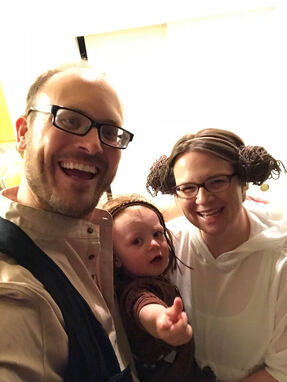 What motivated you to reach out and help The Center? From the name and the website, I knew I wanted to support the mission. Then I met Anne and Jan and wanted to be involved for sure. What’s your favourite thing about The Center? The emphasis on community and social gathering. What do you enjoy doing in your spare time? Singing, eating, catching up with family and friends. Tell us your most favourite thing about Bakersfield. The temps during "winter". What’s your favourite event/shop/restaurant in Bakersfield? Christmastown at the Kern County Museum. What place(s) do you enjoy visiting outside of Bakersfield? Pismo Beach and San Diego (where my sister lives). What’s on your playlist? Kacey Musgraves and the soundtrack for The Marvelous Mrs. Maisel (watch it, but no spoilers! I haven't finished Season Two). Who’s your favourite musician and why? I've thought more about this question lately because I've been listening to a podcast called For the Girls about queer people and their fandom of female divas. Audra McDonald is the queen of Broadway; her voice can do anything plus she's an expert at acting a song and I respect her advocacy. What shows are you currently streaming on Netflix? The Marvelous Mrs. Maisel (Amazon), Dead to Me, Dawson's Creek (always). What is your favourite movie of all time and why? My typical answer is The Sound of Music. You can't beat Julie Andrews. Favorite scene: Maria and the Captain dancing together. What sports team / athlete do you root for? I don't follow sports, but if the Pittsburgh Pirates ever make it to the World Series, they'll have my support. Tell us a unique feature about yourself! I have a PhD in Theatre and Performance. about the AuthorR. Velasco is a Canadian writer new to Bakersfield. She is actively seeking ways to raise community consciousness about LGBTQ issues and topics, one blog post at a time. She is also part of The Center’s Women Support Group. So modern dating is fun. I’m very shy and awkward. It makes for great stories but lots of embarrassing moments.
I think one of my worst dates involved complete silence and me asking boring questions answered with an “I don’t know” every time. I'm a bad source for advice on dating, so I’ll just share some of my anxieties with you. The key to dating is to be yourself but not too much so you don’t send the person running off right? Finding that balance is something I still struggle with. People just want to have a good time and they want to see if you’re someone they could have fun with. I’m sorry, but that’s a lot of responsibility for me. Especially if I’m nervous around people, I shut off and become really clumsy. One of my more recent dates, I realized doing something as simple as holding a cup full of water was difficult, because I was shaking too much and turning red anytime I felt like I said something stupid. I forget how to speak proper English as well. With my slight accent, I just hope people think it’s because I’m Middle Eastern and English might not be my first language. In all honesty it’s just my nerves that I still can’t control at 27. The biggest problem I have though is opening up to people. Keeping people at a distance is my comfort zone. I can have nonsense conversations with people about nothing but talking about or expressing my feelings is a challenge for me. If you really want to take someone seriously, communication is one of the most important aspects of dating or any kind of bonding with another person. I recently met someone who made me realize it's OK to be honest and open up to people. I’ve learned that as long as you are safe, respectful, and honest with each other, you have the ability to experience something beautiful whether it's for a day, a week, or for the rest of your life. Sometimes being respectful and honest on your part doesn’t always pay off and there are jerks out there, but when you find that mutual respect and chemistry it feels amazing. Eventually you WILL find people worth your time, even if you’re a lot like me and maybe talk too much or laugh a lot because you’re nervous. It’s funny that someone I briefly met and will never see again made me realize the importance of respect, communication, and honesty. It gives me hope in the future to find others who will show me the same respect and honesty. It is still not easy for me to just open up to people and I will still most likely run into walls on dates and spill drinks on myself, but it’s just another problem I’ll have to get over. I know even confident people get nervous. Dating is intimidating. It's especially nerve-wracking when we really like the person. But if they are into you enough, they might think your nerves are cute. It's OK if someone doesn’t like you. I’ve been rejected many times. You get over it pretty quickly and move onto the next person, who is potentially better for you anyway. I’ve learned that it has nothing to do with your worth. Sometimes you just click better with other people and it's OK. We only have the present and we forget to make the best of it sometimes. It's OK to be a nervous mess of a human on a date. If the person is worth your time, they’ll still give you a chance.
Today, May 7th, is "Giving Tuesday" - the final day in our Give Big Kern fundraiser. This is our annual fundraiser that keeps the lights on and doors open, which allows us to continue to provide much-needed services for Kern County's LGBTQ+ community.
These are just a few of the ways we work to support, empower and connect LGBTQ+ people and allies in the Kern County area. In 2018, we had over 2,000 visitors, provided 552 counseling sessions and held 7 multi-week workshops that served over 130 people. Numbers aside, the comments and feedback we receive about our services both affirm that our work is needed and appreciated, and inspire us to achieve even more!
“It lets me be open about myself in a way I can’t be at home.” “I feel more confident in standing up for myself.” “I felt safe and heard and felt like my well-being was really cared for.” “It has helped me grow immensely over the last year.” “This is honestly the best cultural competency training we have had in a long time. We think we are open, but there are still so many unrecognized biases.” The bottom line: Your donation makes a real difference in people's lives! We appreciate every single one of the donations we've received so far and hope you can help us meet our $12,000 goal. As of now we're more than halfway there at $7,725! Come celebrate with us!Thinking about poetry often reminds me of senior year in high school trying to decipher William Shakespeare’s literary classics. I can immediately feel a sense of dread over my shoulders while I entertain these memories. Understanding poetry has always been tedious to me. I acknowledge the importance of epics such as Dante’s Inferno, the Iliad and the Odyssey acting as fundamental introductions to the structures and themes observed in poetry; however, there is a distinctive lack of personable content in the Eurocentric, heteronormative classics. I was slightly disillusioned with poetry due to the overemphasis of analyzing European works and focusing primarily on heterosexuality to validate desirable romantic relationships. I felt that way until my freshman year at CSUB when I had the chance to read Sandra Cisneros’ The House on Mango Street, and I realized that there was poetry that could speak to me while also understanding that there is an expansive collection of poetry waiting to be discovered for others. From that moment, I yearned for depictions of love and loss, redemption and vengeance, and cultural representation in poetic works by people who lived in the United States who expressed their intersecting identities in their verses. In observance of National Poetry Month, in no particular order, I have compiled a list of ten LGBTQ+ poets who published poems from diverse perspectives and backgrounds. This is by no means a comprehensive list, but I also recommend visiting the Academy of American Poets, the Lambda Literary Foundation, and the Poetry Foundation websites for greater access to their literary database in order to help others find poets that speak to them. There are links below to view some of the poets’ websites as well as samples of their work, online shops, and clips of their live performances. Want to continue supporting LGBTQ+ poets of color? Check out the Lambda Literary Foundation’s Journal: Nepantla, a “journal of multiplicity, of continual reinvention…[that] stand[s] against racism, sexism, homophobia, transphobia, ableism, classism, xenophobia, etc…” audre lorde“The Black feminist, lesbian, poet, mother, warrior Audre Lorde (1934-1992) was a native New Yorker and daughter of immigrants. Both her activism and her published work speak to the importance of struggle for liberation among oppressed peoples and of organizing in coalition across differences of race, gender, sexual orientation, class, age and ability. An internationally recognized activist and artist, Audre Lorde was the recipient of many honors and awards, including the Walt Whitman Citation of Merit, which conferred the mantle of New York State poet for 1991-93. In designating her New York State’s Poet Laureate, Governor Mario Cuomo observed: “Her imagination is charged by a sharp sense of racial injustice and cruelty, of sexual prejudice…She cries out against it as the voice of indignant humanity. Audre Lorde is the voice of the eloquent outsider who speaks in a language that can reach and touch people everywhere.” – The Audre Lorde Project Featured Poem: “A Woman Speaks” by Audre Lorde (1997) evolve benton“Evolve Benton (pronouns: they, them, theirs, or my name) is the Assistant Director to both the Multicultural and LGBT Resource Centers at the University of California, San Francisco. Evolve identifies as a black, queer, boi (born obviously incredible). Evolve is a prominent social & racial justice educator, writer, and consultant from Los Angeles, CA. In 2018 Evolve published their first poetry collection SIR: poetry dedicated to boihood & black queer love. Also, they co-produced their first independent film, "The BOI DOC". Evolve describes themselves as an artistic spirit using creativity as a form of liberation.” – Black Queer Gold: Evolve Benton Featured Poem: “A Dedication to Ermias Asghedom” by Evolve Benton (2019) franny choi“Franny Choi is a queer, Korean-American poet, playwright, teacher, organizer, pottymouth, GryffinClaw, and general overachiever. She is the author of two poetry collections, Soft Science (Alice James Books, 2019) and Floating, Brilliant, Gone (Write Bloody Publishing, 2014), as well as a chapbook, Death by Sex Machine (Sibling Rivalry Press, 2017). She has received awards from the Poetry Foundation and the Helen Zell Writers Program, as well as fellowships from the Vermont Studio Center and the Rhode Island State Council on the Arts. Her poems have appeared in journals including Poetry Magazine, American Poetry Review, and New England Review, and her work has been featured by the Huffington Post, Ms. Magazine, PBS NewsHour, and Angry Asian Man.” – Franny Choi: About Featured Poem: “To the Man Who Shouted ‘I Like Pork Fried Rice” at Me on the Street” by Franny Choi (2014) alan ginsberg“Renowned poet, world traveler, spiritual seeker, founding member of a major literary movement, champion of human and civil rights, photographer and songwriter, political gadfly, teacher and co-founder of a poetics school. Allen Ginsberg (1926-1997) defied simple classification…the foundation of Ginsberg’s work was the notion that one’s individual thoughts and experiences resonated among the masses. “It occurs to me that I am America”, Ginsberg wrote, and while the statement was intended to be humorous, it also illustrated his idea that democracy begins with the raising of a single voice…The “Howl” – Ginsberg’s most notable work - obscenity trial served as a catalyst in fomenting Ginsberg’s lifelong obsession with First Amendment issues in particular, and political activism in general. Using his fame as an international podium, Ginsberg spoke out on such controversial issues as the Vietnam War, gay rights (he listed his lifelong companion, Peter Orlovsky, as his spouse in his Who’s Who entry), and drugs (he was an early participant in Timothy Leary’s psilocybin and LSD experiments).” – The Allen Ginsberg Project Featured Poem: “Kaddish” by Allen Ginsberg (1959) eileen myles“Eileen Myles came to New York from Boston in 1974 to be a poet, subsequently a novelist, public talker and art journalist. A Sagittarius, their twenty books include evolution (poems), Afterglow (a dog memoir), a 2017 re-issue of Cool for You, I Must Be Living Twice/new and selected poems, and Chelsea Girls. Eileen is the recipient of a Guggenheim Fellowship, an Andy Warhol/Creative Capital Arts Writers grant, four Lambda Book Awards, the Shelley Prize from the PSA, and a poetry award from the Foundation for Contemporary Arts. In 2016, Myles received a Creative Capital grant and the Clark Prize for excellence in art writing. In 2019 they'll be teaching at NYU and Naropa University and they live in New York and Marfa, TX.” – Eileen Myles, Bio, 2019 Featured Poem: “our happiness” – by Eileen Myles (1949) ifti nasim“This Chicagoan, born in Pakistan, has written gay-related poetry in Urdu said to be the first direct statement of “gay longings and desires” ever published in that language. The publication of Ifti Nasim‘s book of poetry, Narman (a Persian word for “hermaphrodite”, or half-man, half-woman), has initiated both wild praise and hateful criticism. Narman has also been distributed in Urdu in India and in the West (in England, Norway, Sweden, and Germany). In December 2000, he published Myrmecophile. [Narman’s] courageous publication met with revilement but critical acclaim and inspired other Pakistan poets. He co-founded Sangat/Chicago and has been president of the South Asian Performing Arts Council of America.” – The Chicago LGBT Hall of Fame Featured Poem: “My Father” – by Iftikhar Nasim Ifti june jordan“June Jordan (1936 - 2002) was a poet, activist, journalist, essayist and teacher. Prolific and passionate, she was an influential voice who lived and wrote on the frontlines of American poetry, international political vision and human moral witness. The author of many award-winning books, she traveled widely to read her poems and to proclaim a vision of liberation for all people. Dynamic, rebellious, and courageous, June Jordan was, and still is, a lyrical catalyst for change.” – About June: Bio Featured Poem: “Poem for Haruko” by June Jordan (2005) alok vaid-menon“ALOK (they/them) is a gender non-conforming performance artist, writer, and educator. Their eclectic style and poetic challenge to the gender binary have been internationally renowned. They were recently the youngest recipient of the Live Works Performance Act Award granted to ten performance artists across the world. In 2017 they released their inaugural poetry chapbook FEMME IN PUBLIC. They have been featured on HBO, MTV, The Guardian, National Geographic, The New York Times, and The New Yorker and have presented their work at 400 venues in more than 40 countries.” – Alok V Menon Featured Poem: “i am used to this” – by Alok Vaid-Menon (2016) ching-in chen“Ching-In Chen is the author of The Heart's Traffic (Arktoi/Red Hen Press, 2009) and recombinant (Kelsey Street Press, 2017). Born of Chinese immigrants, they are a Kundiman, Lambda, Callaloo and Watering Hole Fellow and a member of the Macondo and Voices of Our Nations Arts Foundations writing communities. A community organizer, they have worked in the Asian American communities of San Francisco, Oakland, Riverside and Boston, as well as helped organize the third national Asian Pacific American Spoken Word and Poetry Summit in Boston. Chen is also the co-editor of The Revolution Starts at Home: Confronting Intimate Violence Within Activist Communities (South End Press, 2011) and Here Is a Pen: an Anthology of West Coast Kundiman Poets (Achiote Press, 2009).” – Ching-In Chen: Bio Featured Poem: “Simulacra” – by Ching-In Chen Lorenzo Herrera y Lozano“A Queer Xicano writer of Rarámuri descent, Herrera y Lozano is the author of Amorcito Maricón (Kórima Press, 2014) and Santo de la Pata Alzada: Poems from the Queer/Xicano/Positive Pen (Evelyn Street Press, 2005)…Along with Adelina Anthony and Dino Foxx, Lorenzo is a co-author of Tragic Bitches: An Experiment in Queer Xicana & Xicano Performance Poetry (Kórima Press, 2011), and the editor of Queer Codex: Chile Love(allgo/Evelyn Street Press, 2004), an anthology of visual and literary works by queer men of color from across the U.S.; and, Queer Codex: Rooted (allgo/Evelyn Street Press, 2008), a mix-genre anthology by queer women and trans-identified writers and visual artists.” – Lorenzo Herrera y Lozano: Bio Featured Poem: “You Bring Out the Joto in Me” by Lorenzo Herrera y Lozano (2011) about the author: jennifer valencia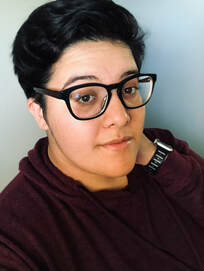 Cat dad, board game enthusiast and support class party member, Jennifer Valencia is a local volunteer blogger and staffer at The Center for Sexuality and Gender Diversity. With an interest in topics pertaining to critical diversity and feminist theory, Jennifer has completed a Bachelor’s Degree in Interdisciplinary Studies with a concentration in Women, Gender, and Sexuality Studies from Cal State, Bakersfield. Born and raised in Los Angeles, they have lived in Bakersfield for over a decade and considers Kern County home. April is National Volunteer Month and we want to take this moment to salute to all of our volunteers who continue to make The Center as vibrant as it is! Your dedication makes a huge impact to the success of The Center and we thank you for being your wonderful self. To further commemorate this occasion, let’s get to know a little bit more about one of our awesome volunteers, Jose Hernandez! 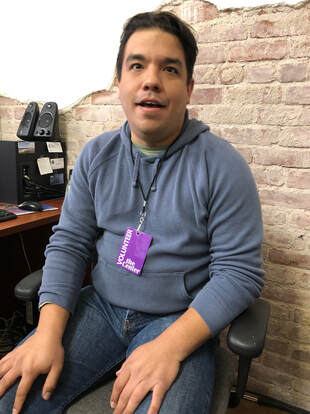 How long have you been a volunteer with The Center? Going on 3 months. What motivated you to volunteer at The Center? I’ve always volunteered in some form or another. But recently I’ve been struggling with depression and usually the best remedy is to do good and integrate yourself to people. Why is volunteering important to you? Always considered it to be a selfish thing. Taking the time and the energy to authentically help someone, to put a smile on their face, it’s gratifying. What’s your favourite thing about volunteering? Mostly the people. You get to meet people. Whether you’re just meeting or touching base after a long time it’s always about the people. The energies you exchange, the stories you hear, the connections you make - they’re awesome. Aside from volunteering, what do you enjoy doing in your spare time? Mostly trying to make a better person of myself. I listen podcasts; often queer-centric podcasts, work out, zen out doing yard work, or vegging out watching geek stuff. Tell us your most favourite thing about Bakersfield? Winter, food downtown, the random taco stands you find driving around some residential areas, the summer dusk; sometimes the light catches the smog in such a way that makes it like really colorful, and the music. What’s your favourite event/shop/restaurant in Bakersfield? Tejón Outlets, menudo cook off, and The Mark. What place(s) do you enjoy visiting outside of Bakersfield? Bravo Farms, Tachi Palace Casino, Tulare because you can get really good Portuguese food and pastries there. What’s on your playlist? Same things I’ve been listening to my whole life. Billie Holliday, Joni Mitchell, Dave Mathews, Scissor Sisters, and the soundtrack to Buffy’s “Once More With Feeling” episode, I sometimes listen to newish stuff. I just discovered Lizzo. What shows are you currently streaming on Netflix? I usually swing from optimistic utopian future to pessimistic post apocalyptic future. So a lot. My favorites that recommend to people, Sense8, Altered Carbon, Call the Midwife, The Crown, and Casa de Flores. I’m a sucker for novellas. 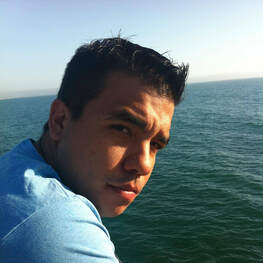 What is your favourite movie of all time and why? Interview with A Vampire. It speaks to me - an allegory of HIV, growth through pain, and a cautionary tale of hubris. Who’s your favourite super hero? I’m a geek so I have several. Superman, Booster Gold, Batman, Wonder Woman, Zatana and the list could go on, but if I had to choose one it would be Batman. Although altruism and optimism are great, the most useful and real life application of morals come from him. about the authorR. Velasco is a Canadian writer new to Bakersfield. She is actively seeking ways to raise community consciousness about LGBTQ issues and topics, one blog post at a time. She is also part of The Center’s Women Support Group.
|
Receive Monthly UpdatesWe have so many exciting things going on, be the first to find out!
|
Helpful Links |
Get Involved |
Contact Us |
Certified as Financially Sound and TransparentEIN: 45-3709449
|
|
© The Center for Sexuality & Gender Diversity 2018
|
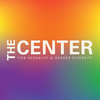

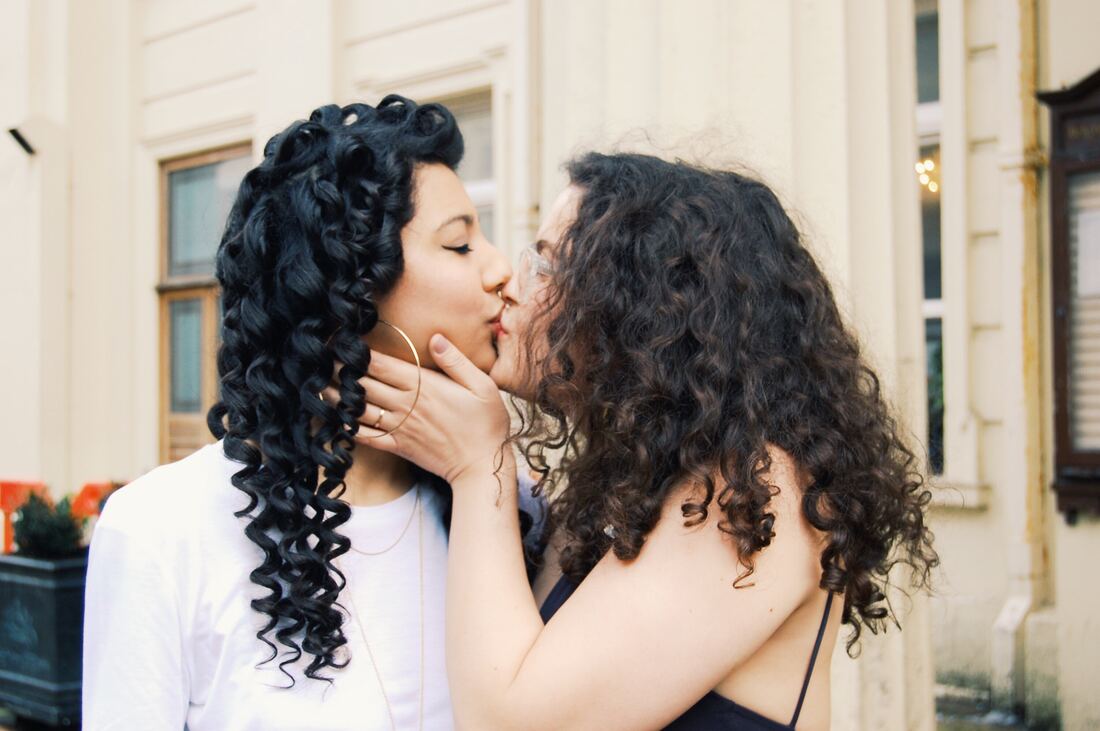
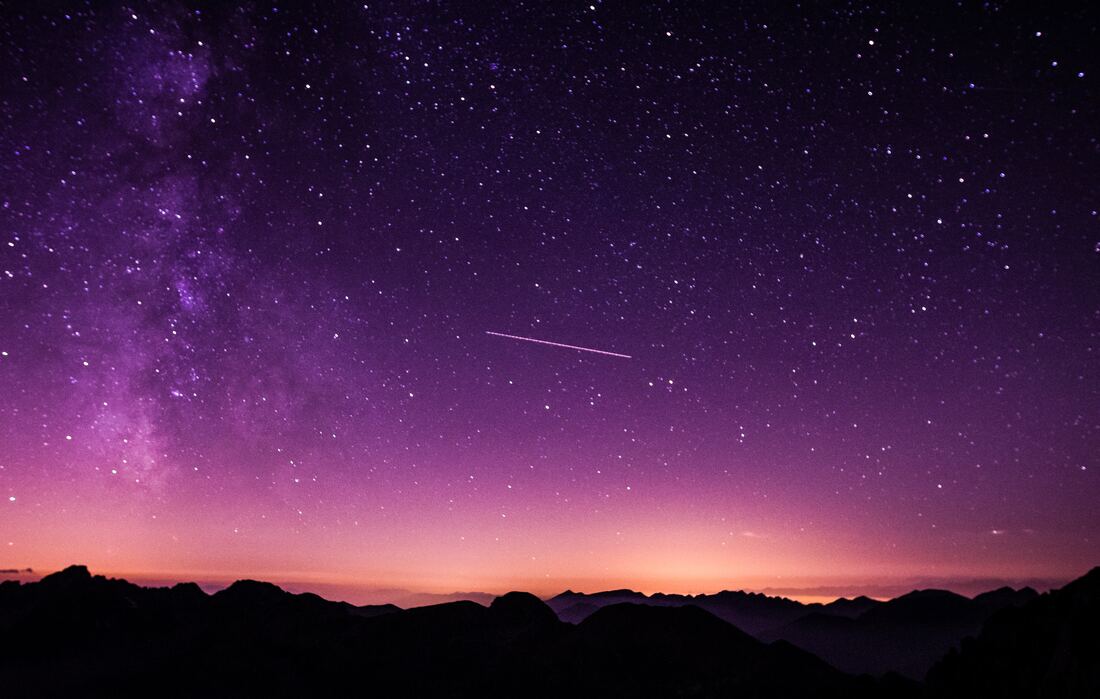
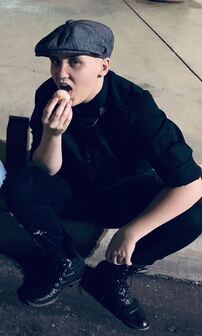
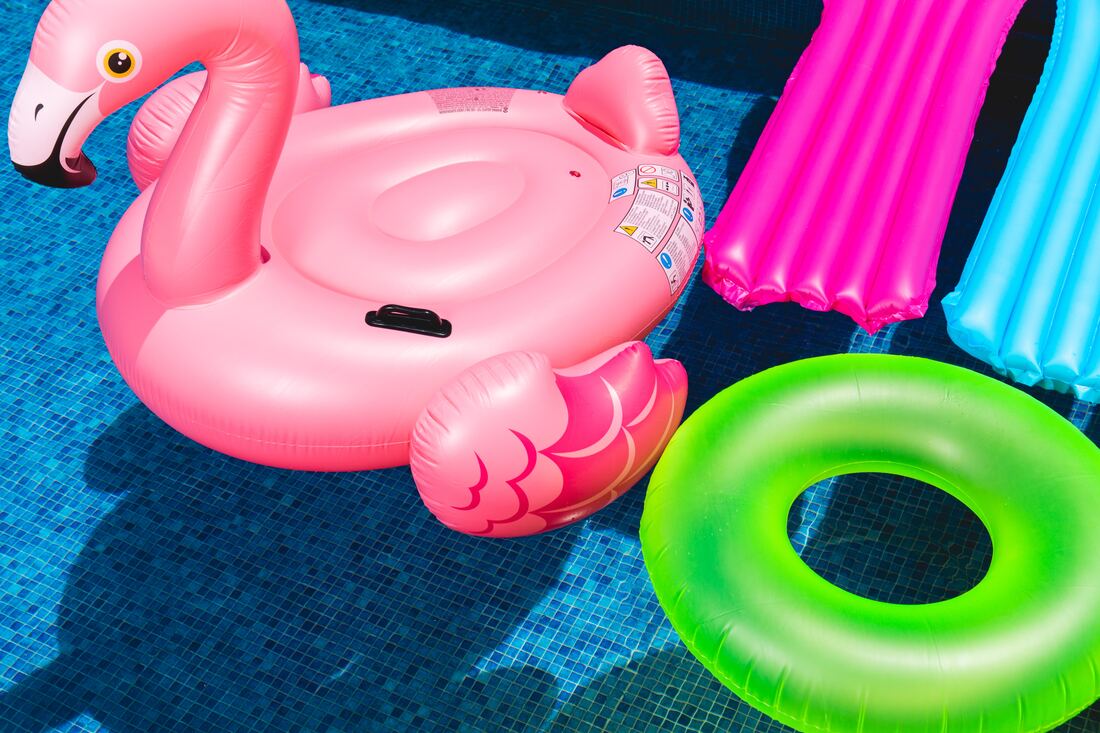
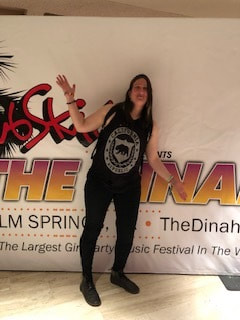
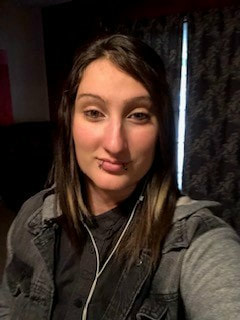
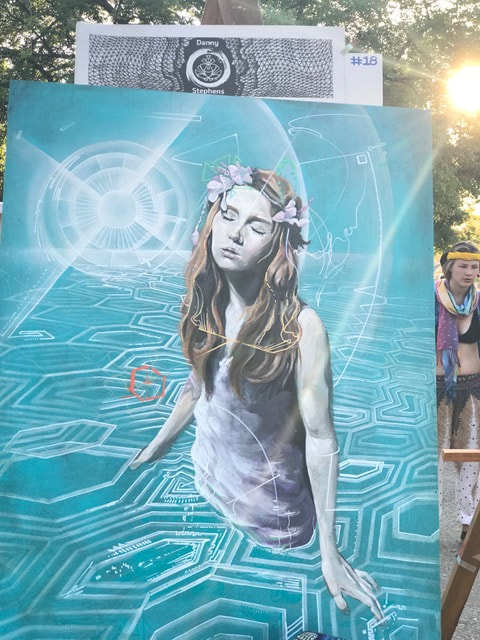
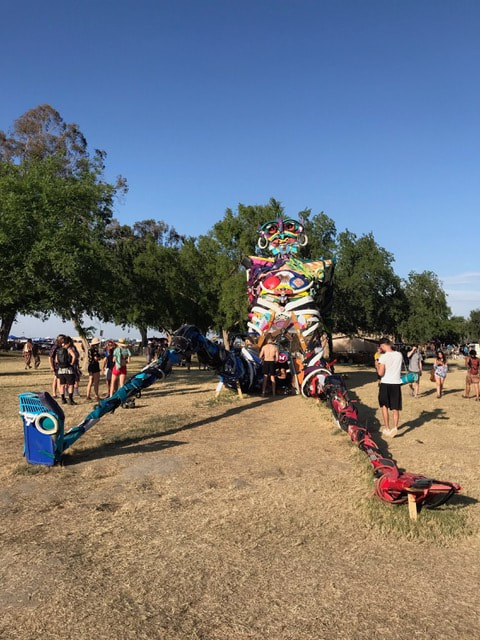
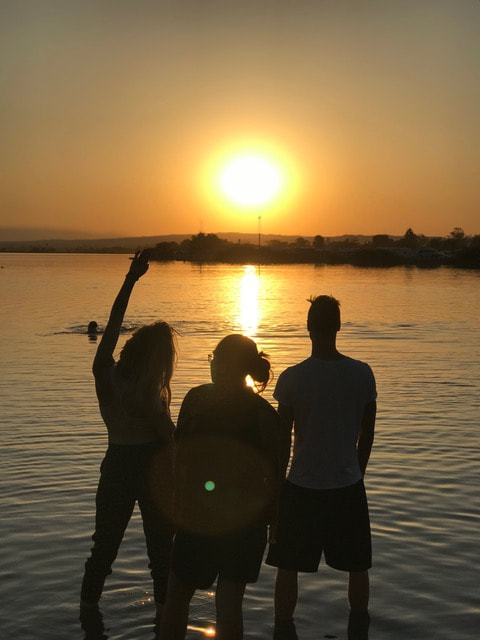
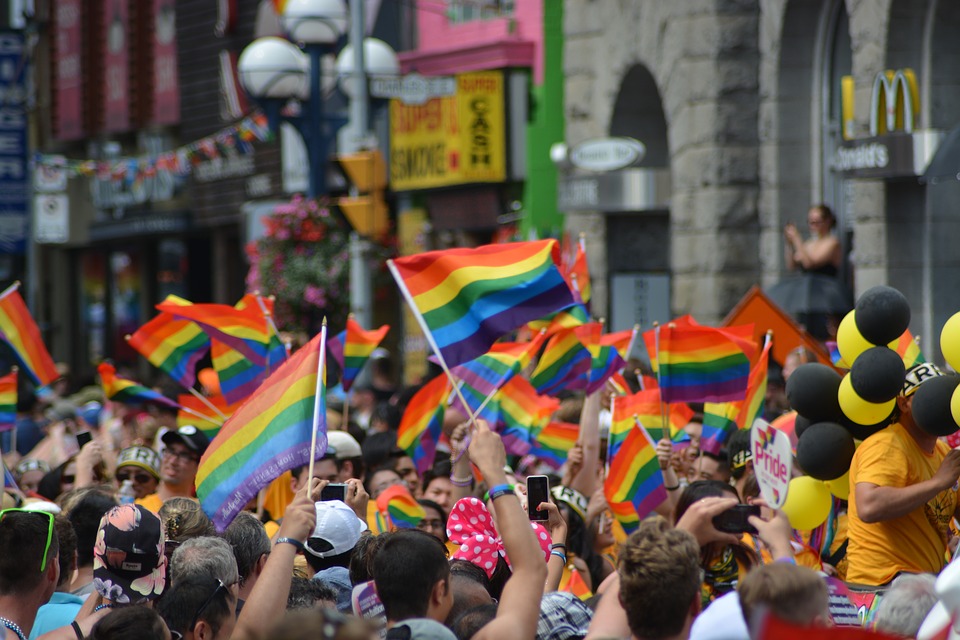
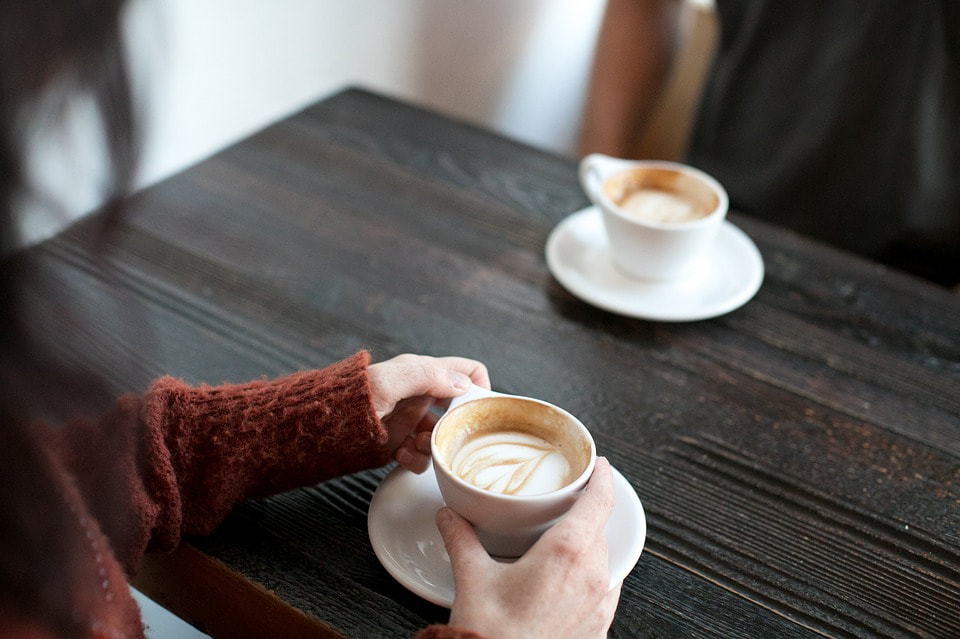
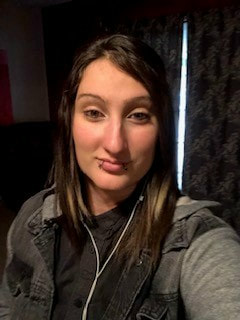
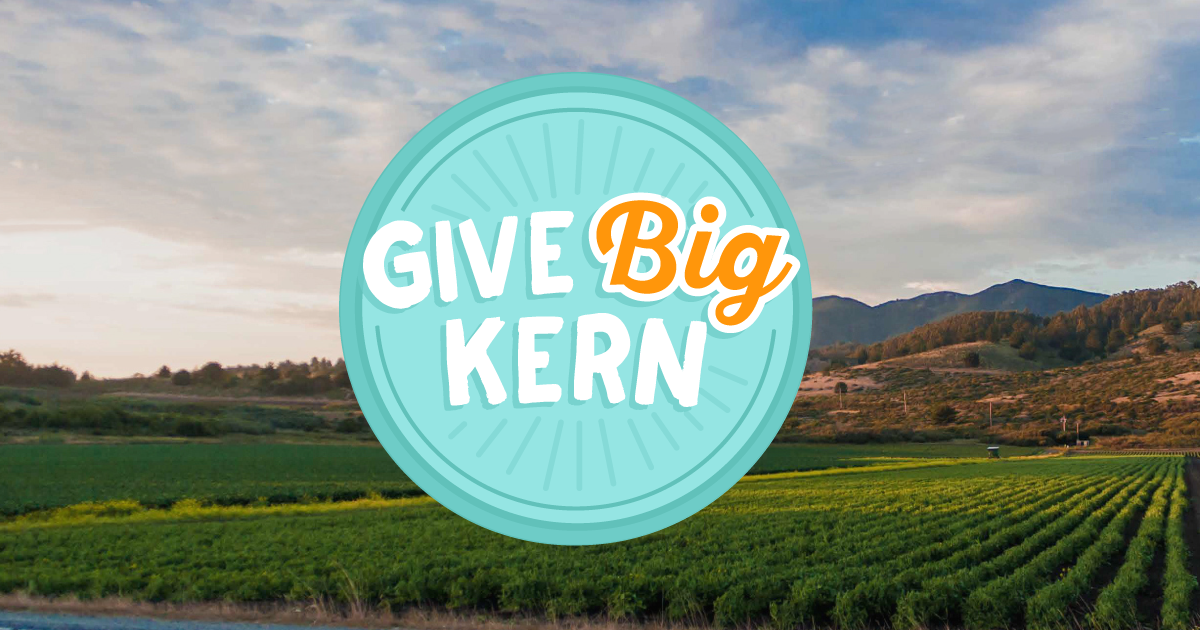
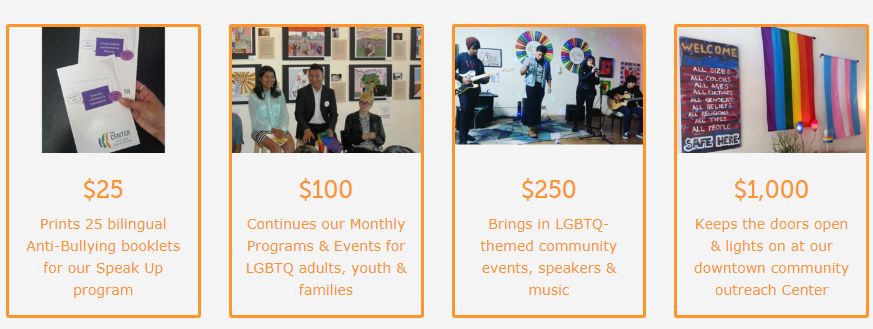
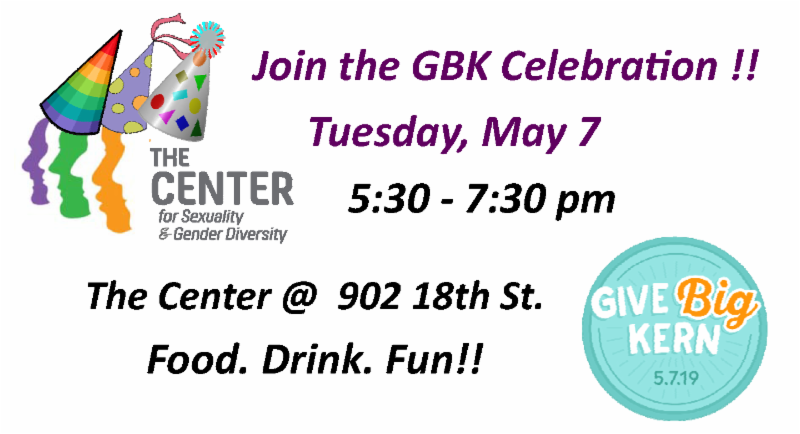
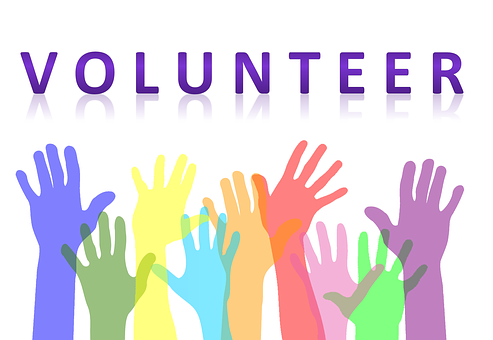
 RSS Feed
RSS Feed


